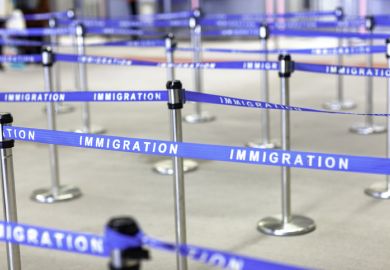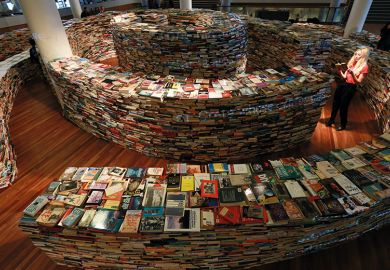Five thousand National Service recruits in the 1950s signed the Official Secrets Act but were never going to keep the Russian course hush-hush. Geoffrey Elliott and Harold Shukman sustain the delicate irony of their title, Secret Classrooms , throughout this book, however. For many students at the Joint Services School for Linguists, the most secret information they would ever absorb would be learning the parts of an aeroplane or the workings of a rifle in Russian.
This government enterprise, begun in 1951, was an urgent response to the international crisis of Stalin's final years. The course was still young when he died in March 1953. The authors record the classroom reaction to this event of 50 years ago, but the JSSL lived on until the end of the decade.
The conscripts did not often have to wear uniform and they were a motley, headstrong (and, yes, gifted) crew, but this was a serious operation, not a youthful Dad's Army exercise. Elliott and Shukman record the liveliness and oddities of the course on almost every page, but the superb organisation, professional competence of the administrators and teachers and the competitiveness among the students ensured that the JSSL made an impact on the university scene for decades afterwards.
Initial selection after two months set up students to be translators or to start the longer course for interpreters at Cambridge or London. There was the ever-present threat of being "RTUd". The dreaded prospect of being "returned to unit" was real. Fail the weekly test three times consecutively and you were out, or at least relegated from the interpreters' to the translators' course.
Many students also received an introduction to British geography. Crail, near St Andrews, and Bodmin hosted some parts of the course, the latter being perhaps a little unfairly treated in the book because of its allegedly poor weather. Also, the authors do not mention Pembrey in Carmarthenshire, where there was once an RAF station. Into it several dozen kursanty (students on the course) decanted one summer's day, apparently unexpected by the authorities. The young pilots there flew the students over the Welsh and North Devon coasts, as if to disprove the unofficial course motto: "He that is born to crawl cannot fly" (Maxim Gorky).
The authors give Dame Elizabeth Hill, first professor of Russian at Cambridge University, a fine press. Largely self-taught, imposing but kindly, she exhibited a genius for organisation where there was no precedent. She selected the most unlikely array of instructors: eccentrics, actors, ex-political prisoners, former nuns and future priests. George Bolsover and Ronald Hingley did the same for the parallel course in London, but with a heavier hand and, it must be said, with probably a superior overall points score in the ultimate civil service interpreters exam.
How high were the standards achieved? Six hours a day in class, homework five days a week, test on Friday afternoons, Russian film on Saturday mornings: this was maximum exposure, and the results matched the programme.
Students achieved A level after nine months and degree level in language after about 18 months. A few of the best passed out as virtually bilingual interpreters.
Elliott and Shukman write with style and wit. The appeal of the book is by no means limited to those who today rightly bemoan that the major impact of these courses on language teaching in higher education was not sustained.
They record something more than a byway in the history of the cold war, a true contribution to British history. Even the many whose career paths led in other directions found themselves permanently marked by what they had learnt. The course turned out Russophiles rather than Russophobes - a great tribute to the organisers.
Elliott and Shukman, graduates of the JSSL themselves, have researched diligently and produced a rounded account from which every former kursant will catch up with what happened behind the scenes. The occasional in-jokes are told with such verve that they become the property of the general reader. One thinks of the queue of kursanty waiting to board the bus for Cambridge at the course's "dormitory suburb" of Newmarket (13 miles away).
They sing, while waiting, the word dostoprimechatelnost (equivalent to the German Sehenswürdigkeit - sight worth seeing) repeatedly to the tune of Deutschland über Alles . Once on the bus the kursanty fall silent, mugging up grammar for the next test or vocabulary from the ubiquitous wordlists.
The authors capture the very spirit of an enterprise that was, at once, highly disciplined, but with an occasional touch of the anarchic.
Canon Michael Bourdeaux, founderand life president of the Keston Institute, Oxford, was on the Russian course at Cambridge from 1953-54.
Secret Classrooms: An Untold Story of the Cold War
Author - Geoffrey Elliott and Harold Shukman
ISBN - 1 903608 09 0
Publisher - St Ermin's Press (www.ermin.com)
Price - £18.99
Pages - 246



